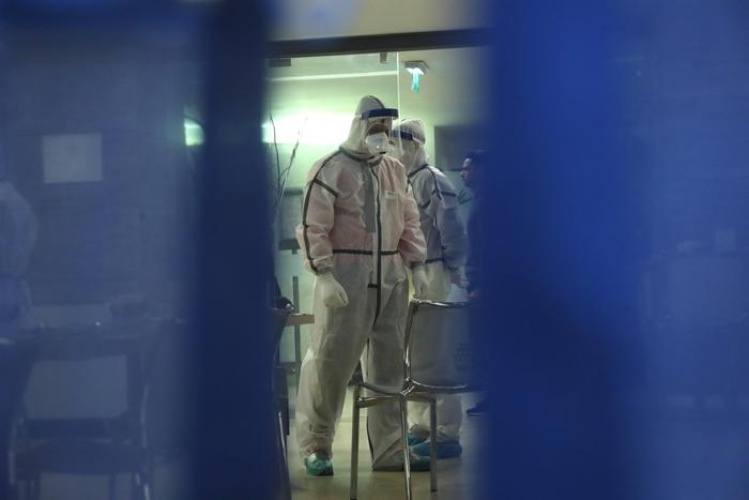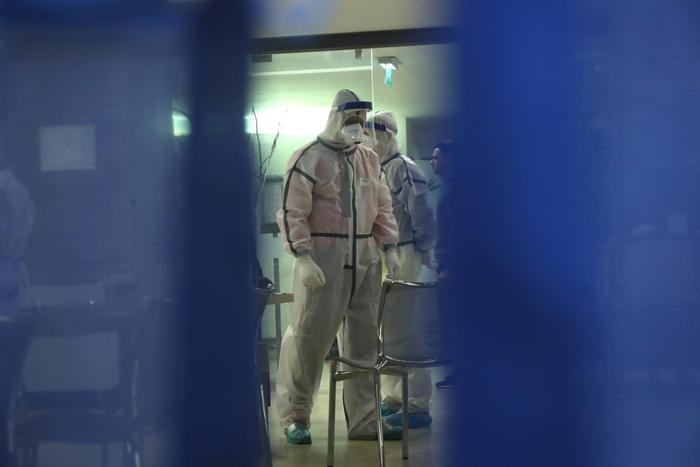The four latest deaths to be reported in Italy were all elderly people – three over the age of 80 from Lombardy, the worst impacted region, and a 76-year-old woman in Veneto, another region in the north hit by the virus.
All 11 deaths in Italy have occurred since Friday when the number of infections began to surge.
Angelo Borrelli, the chief of Italy’s Civil Protection agency, said on Tuesday the number of cases in the country had increased 45 per cent in the last day.
Authorities confirmed the number of cases had risen to 322.
Tuscany reported its first two cases, including one in the tourist destination of Florence, while Sicily recorded one: a tourist from the worst-affected Lombardy region.
Media reports also suspected another two cases of the virus in the regions of Marche and Liguria.
Switzerland, Austria, Spain and Croatia confirmed their first cases of the virus in their countries on Tuesday.
The cases of coronavirus involved people who had recently travelled from virus-hit parts of neighbouring Italy.
Italy and its neighbours have decided not to close their borders over the coronavirus, saying it would be a disproportionate and ineffective measure, their health ministers said on Tuesday.
The decision was announced after an emergency meeting in Rome over the outbreak of the virus in Italy between health minister Roberto Speranza and his counterparts from Austria, Croatia, France, Germany, Slovenia and Switzerland.
According to Italy’s health ministry, more than 4100 people had been tested for the virus.
Italy has now confirmed more cases of the coronavirus, also known as COVID-19, than any other countries except China and South Korea, partly due to large-scale efforts to test thousands of people within days.
But new infections are increasing at a slower rate, according to Borelli.
“I think the numbers that we have registered in Italy and in the rest of the world have been confined to reasonable figures,” Borelli said, adding that in his opinion the data did not point towards an impending pandemic.
Eleven towns – 10 in Lombardy and one in Veneto – are under lockdown, with some 50,000 residents prohibited from leaving.
Schools have been closed as a precaution in Lombardy, Veneto, Piedmont, Emilia-Romagna and Friuli-Venezia Giulia, while regional authorities have ordered bars, restaurants, cinemas and discos to close.
The spread of the virus has also disrupted high-profile events including Milan Fashion Week and the Venice Carnival.
On Monday evening, sports minister Vincenzo Spadafora announced that six Serie A football matches would be played behind closed doors.
And in Milan, operas have also been cancelled at the city’s famed La Scala.
The stock market inthe city – Italy’s financial capital – was down over 6 per cent on Monday in its worst day since 2016.
Meanwhile, authorities are scrambling to try and trace the origin of the outbreak in Italy.
Globally there are 80,350 suspected and confirmed cases and 2,705 people have died, according to the Johns Hopkins hospital – one of the biggest medical researchers in the world which is collating the figures.












